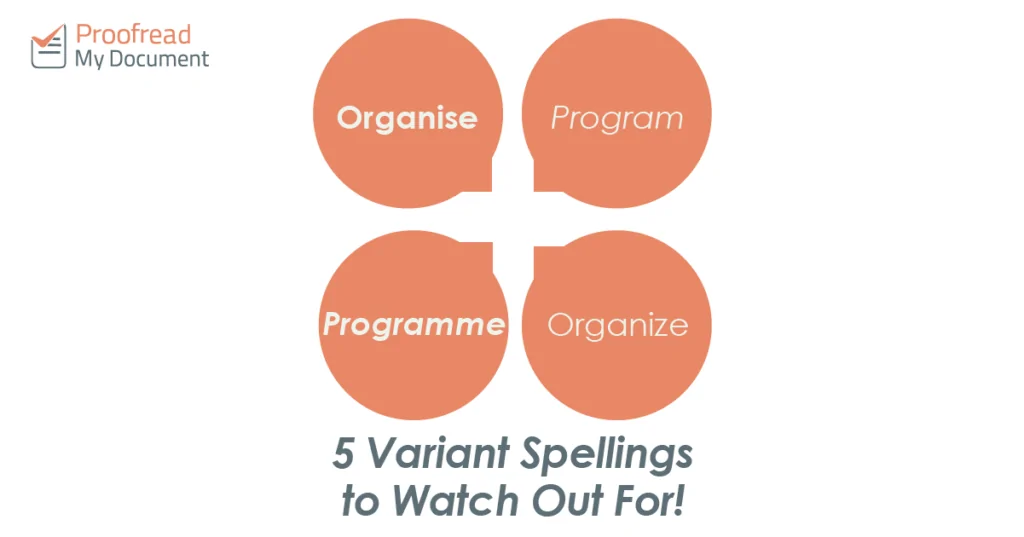Spelling is hard enough when a word can only be written in one way. But it turns out that some sneaky terms have more than one spelling! If proofreading your own work, you therefore need to look out for words with variant spellings.
What Are Variant Spellings?
There are three main kinds of variant spellings:
- Regional differences in spelling (e.g. ‘centre’ being spelled ‘center’ in the US)
- Informal spellings (e.g. when ‘all right’ is written as ‘alright’)
- Words with more than one spelling (e.g. ‘organise’ and ‘organize’)
With regional spellings, check what the correct spelling is in your country; with informal spellings, you just have to avoid using them in formal writing.
It’s the last of these we’re interested in, though. These terms have two accepted spellings in Australian English. For example, although ‘organise’ is the standard spelling of this term, ‘organize’ is a variant in the dictionary.
In your writing, the key to dealing with variant spellings is consistency: as long as you pick one spelling and stick to it throughout your work, you should be fine. However, if you’re using a specific style guide (e.g. one set out by your university) you should check that for advice.

Five Spellings to Watch Out For
The list below covers some common terms and letter combinations. This should help you spot problematic spellings when they appear in your work.
1. -is- vs. -iz-
We touched upon this with ‘organise’ above, but the ‘-iz-’ spelling variation pops up in a lot of words. Generally, it’s better to stick to the ‘-is-’ spellings in Australian English because they’re more common, but also because it’s only ‘capsize’ in Australian English that always takes a ‘z’.
Find this useful?
Subscribe to our newsletter and get writing tips from our editors straight to your inbox.
2. -ed vs. -t
Certain verbs take either ‘-ed’ or ‘-t’ at the end in the past tense. The past tense of ‘burn’, for example, can be spelled as either ‘burned’ or ‘burnt’, and the past tense of ‘learn’ can be either ‘learned’ or ‘learnt’. These spellings are interchangeable, though ‘-t’ endings are more common.
Most of the time, the word endings are still interchangeable when used as adjectives (e.g. ‘burnt toast’ means the same as ‘burned toast’). However, while ‘learned’ is an adjective meaning ‘knowledgeable’, the ‘-t’ spelling of this term cannot be used this way.
3. Among, Amid and While vs. Amongst, Amidst and Whilst
In modern English, the ‘-st’ spellings of these terms are less common (some people consider them old-fashioned). But they are still accepted, and you may want to use them in formal writing.
4. Program vs. Programme
Following the American example, ‘program’ is the standard spelling of this word in Australian English. However, the old British spelling ‘programme’ is still accepted in non-computing contexts.
5. Encyclopedia vs. Encyclopaedia
Finally, we have ‘encyclopedia’ and ‘encyclopaedia’. This is another case where the American spelling, which drops the extra ‘a’, is common in Australian English but not British English. However, if you want to use the older ‘-ae-’ spelling, it is still accepted over here.
Have we missed any important terms? If so, get in touch and let us know!



